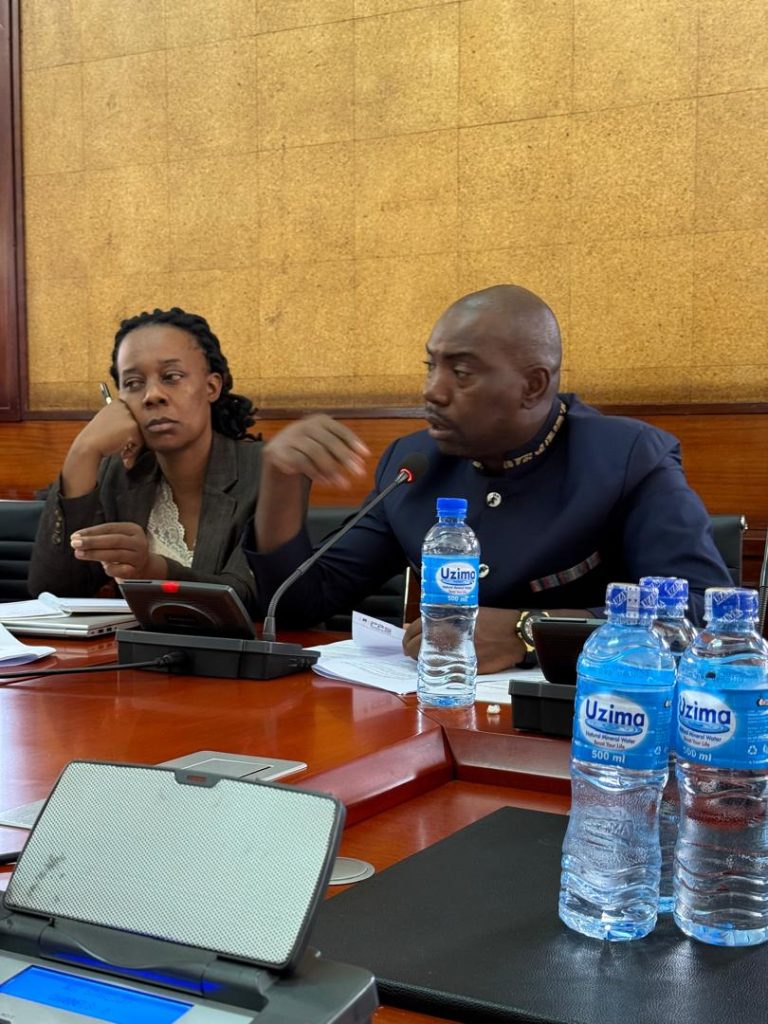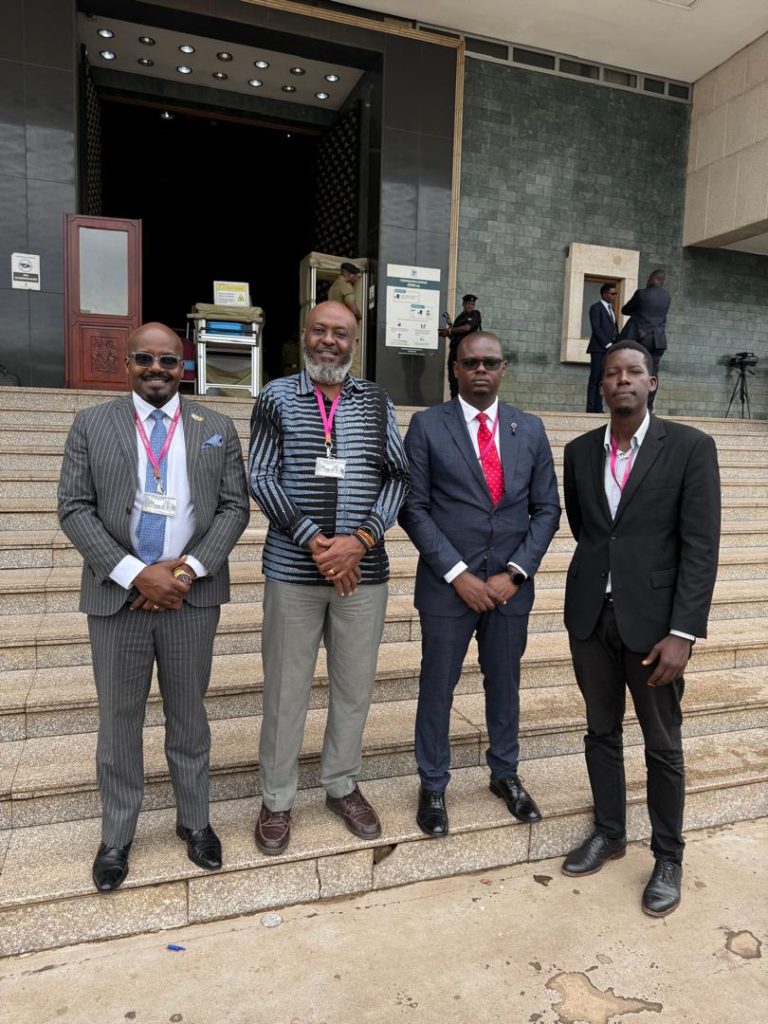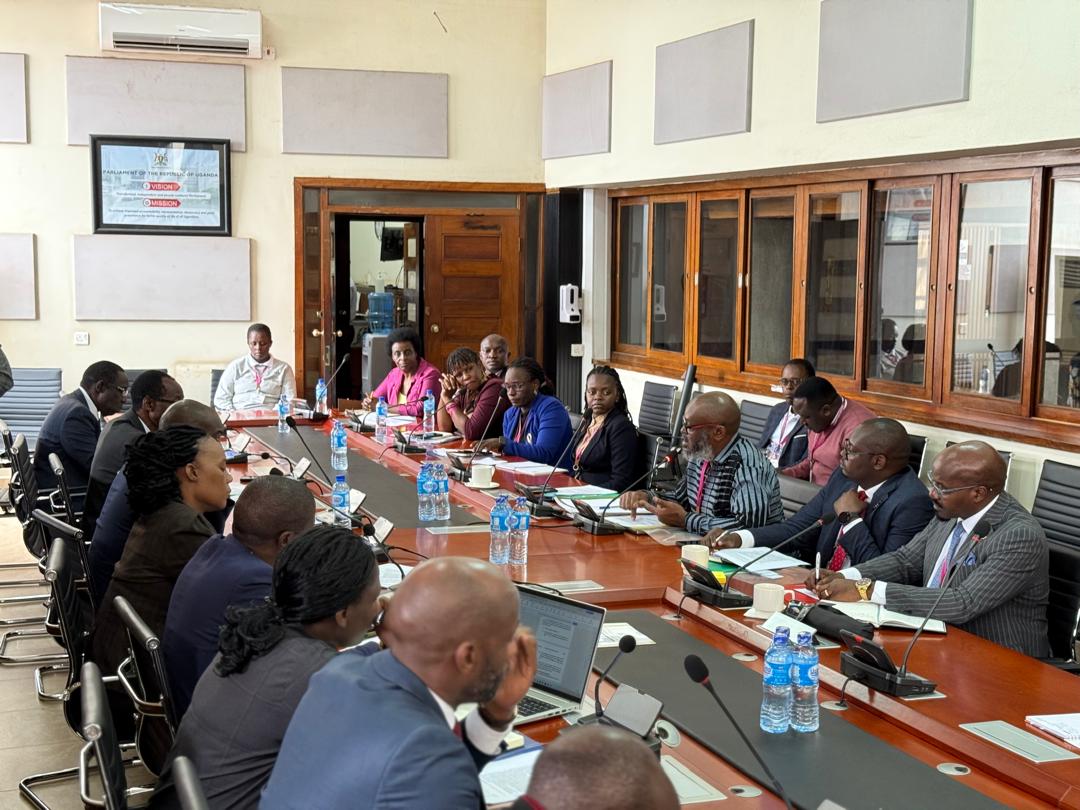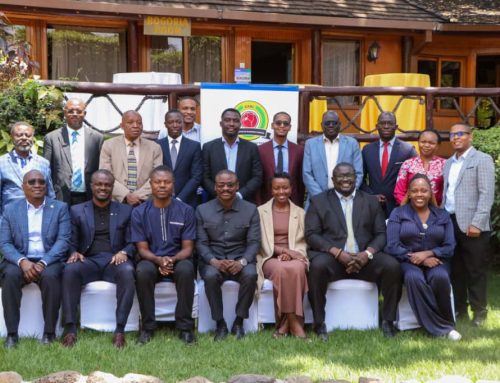Monday, 14th April 2025 Kampala, Uganda, – The East African Business Council (EABC) has called on EAC governments to adopt fiscal policies that harmonize taxes and fuel business activity, aiming to boost intra-EAC trade and increase people’s earnings across the region ahead of pre-budget consultations.
 Presenting EABC’s submission to the Parliamentary Committee on Finance, Planning, and Economic Development on the National Budget Priorities and Tax Proposals for FY 2025/26, on 10th April 2025, EABC Vice Chairperson Simon Kaheru highlighted Uganda’s role in driving regional economic integration through business growth driven by the right policies.
Presenting EABC’s submission to the Parliamentary Committee on Finance, Planning, and Economic Development on the National Budget Priorities and Tax Proposals for FY 2025/26, on 10th April 2025, EABC Vice Chairperson Simon Kaheru highlighted Uganda’s role in driving regional economic integration through business growth driven by the right policies.
With Uganda’s economy reaching UGX 202.7 trillion (USD 53.7 billion) in FY 2023/24—up 6.1% from the previous year—EABC lauded Government of Uganda’s progress in infrastructure development reducing cost of doing business for the private sector.
According to the EABC brief, harmonized fiscal policies across the East African Community (EAC) are vital to unlocking the region’s full potential, with a goal of achieving 25% intra-regional trade—equivalent to USD 80 billion—to ensure sustainable prosperity for its people, while the current share of intra-EAC trade to total EAC trade stands at 15%, valued at USD 12.1 billion in 2023.
Key proposals presented to the parliamentary committee include:
- Uniform EAC CET Application: Reduce Stays of Application (e.g., Uganda’s 901 tariff lines in FY 2024/25) to spur regional value addition and sourcing, avoid the denial of preferential market access for finished products despite meet origin criteria, and boost regional trade.
- Tax Harmonization: Eliminate discriminatory taxes (such as excise duties and VAT) and charges on EAC-originating goods to lower the cost of cross-border trade, enhance regional competitiveness, and increase earnings for producers and workers.
- Monetary Union Alignment: Harmonize fiscal and monetary policies to pave the way for the 2032 EAC single currency, stabilizing markets and encouraging investment.
- Fight Illicit Trade: Implement a cost-effective regional Track and Trace system, comprising national and regional information-sharing focal points, to curb revenue losses, protect jobs, and prevent capital flight, as the EAC loses USD 1.6 billion annually due to smuggling.
- Pre-Budget Consultations: The EAC Ministers of Finance should synchronize pre-budget consultations across the region, focusing on the harmonization of tax regimes and involving the private sector to spur intra-regional trade and enhance policy predictability.
“Fiscal policies must benefit both businesses and people,” said Simon Kaheru, EABC Vice-Chair, Uganda Chapter. “By harmonizing taxes and trade regulations, EAC governments can create more jobs, increase incomes, and strengthen the regional economy, with Uganda taking a leading role in this effort.”
The Committee welcomed the EABC’s submission and urged the private sector to engage more boldly with governments.
 “We agree with your recommendations, but we believe the private sector should do more. Engage with us consistently throughout the year, as there is much more you need to do, even as you expect governments to take further action, “said Hon. Dickson Kateshumbwa, MP for Sheema Municipality.
“We agree with your recommendations, but we believe the private sector should do more. Engage with us consistently throughout the year, as there is much more you need to do, even as you expect governments to take further action, “said Hon. Dickson Kateshumbwa, MP for Sheema Municipality.
EABC’s recommendations seek to deepen EAC integration and trade, ensuring that policies not only drive GDP growth—projected at 5.7% in 2025 amid of reduced international aid, conflict and global protectionism —but also deliver tangible benefits for East Africans. The EABC expressed gratitude to the Committee for their engagement and urged the swift adoption of these measures in the FY 2025/26 budgets.
Also in atten dance at the meeting were EABC Governing Council Members, Mr. Kenneth Ayebare and Mr. Oscar Kamukama.
dance at the meeting were EABC Governing Council Members, Mr. Kenneth Ayebare and Mr. Oscar Kamukama.





